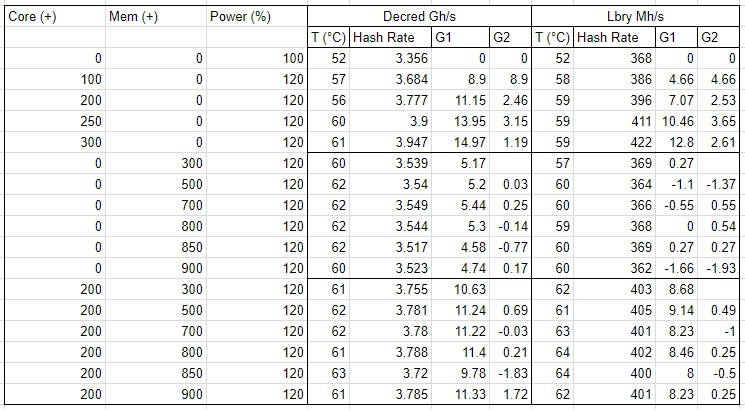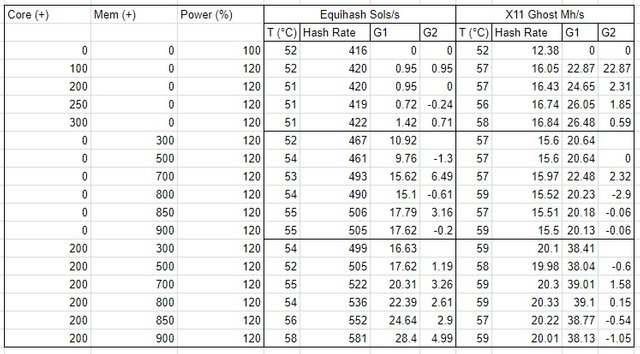Overclockers guide to mining crypto currency
"You can only overclock your CPU to 4100 GHz?... That is so sad, I can do 4108 GHz if I don't plug in my speakers..."
Only a true overclock snob could understand the joy of expressing a sentence like this. I am one of those guys, used every sane and insane method custom loops etc to get the next 50 MHz.
Enter crypto currency world
I was furious, when I realized my custom loop cooled Asus ROG Nvidia GTX 1080 was hashing slower than my random single fan EVGA GTX 1060. But what does the number of fans or the temperature has anything to do with crypto-mining? Apparently nothing. But surely something must effect and there has to be some sweet spot right?
Anyone could have done this but I HAD TO do it.
3 parameters I could have played with, and I played with 2 keeping the power at 120% these values are recorded on a 1080. The actual hashrate on other nvidia cards will differ but the effect of the changes should be relatively similar.
The test:
- First lines in charts are stock speeds, with no overclocking.
- First test was to only overclock the core
- Second test overclock memory while keeping the core at stock
- Third keep the core at a mid level and overclock memory
- For every algorithm there are 4 columns
- T -> temperature
- Hash rate
- G1 -> % gain compared to stock
- G2 -> % gain compared to previous step
Lyra overclocking:
From what I can see, core frequency is the key here, memory effects a little bit but not too significant, after a certain core frequency pushing effect is reduced or negligible
Ethash - Ethereum overclocking:
Core helps a little bit, and you should certainly look for that "sweet spot frequency" but the hashrate is mostly driven by memory speed, the more the better!

Decred overclocking:
Decred is virtually unaffected by memory clock, core is everything. You'll probably get more if you can push core frequency even further
Lbry overclocking:
This one is very hard to read, or decide. It looks like you need a certain amount of core/memory frequency and once you achieve that, pushing further is irrelevant.

Equihash - Zcash overclocking:
Equihash is another interesting one, both core and memory effects the hash rate, but you'll need a "certain" core frequency to get the best results before tweaking memory
X11 overclocking
You again need a little bit core plus a little bit memory, but once you find the threshold required (which was rather low in my case) you don't get any more benefits from pushing it further

Great info! Thanks for posting!